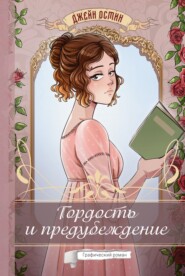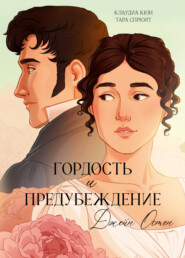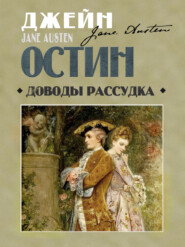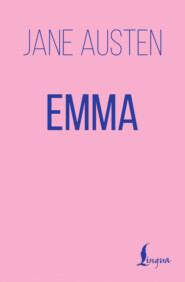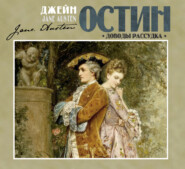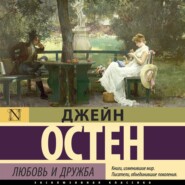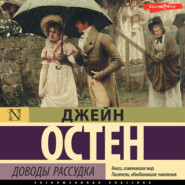По всем вопросам обращайтесь на: info@litportal.ru
(©) 2003-2025.
✖
Pride and Prejudice
Настройки чтения
Размер шрифта
Высота строк
Поля
During their walk, it was resolved that Mr. Bennet's consent should be asked in the course of the evening. Elizabeth reserved to herself the application for her mother's. She could not determine how her mother would take it; sometimes doubting whether all his wealth and grandeur would be enough to overcome her abhorrence of the man. But whether she were violently set against the match, or violently delighted with it, it was certain that her manner would be equally ill adapted to do credit to her sense; and she could no more bear that Mr. Darcy should hear the first raptures of her joy, than the first vehemence of her disapprobation.
In the evening, soon after Mr. Bennet withdrew to the library, she saw Mr. Darcy rise also and follow him, and her agitation on seeing it was extreme. She did not fear her father's opposition, but he was going to be made unhappy, and that it should be through her means, that she, his favourite child, should be distressing him by her choice, should be filling him with fears and regrets in disposing of her, was a wretched reflection, and she sat in misery till Mr. Darcy appeared again, when, looking at him, she was a little relieved by his smile. In a few minutes he approached the table where she was sitting with Kitty; and, while pretending to admire her work, said in a whisper, "Go to your father, he wants you in the library." She was gone directly.
Her father was walking about the room, looking grave and anxious. "Lizzy," said he, "what are you doing? Are you out of your senses, to be accepting this man? Have not you always hated him?"
How earnestly did she then wish that her former opinions had been more reasonable, her expressions more moderate! It would have spared her from explanations and professions which it was exceedingly awkward to give; but they were now necessary, and she assured him with some confusion, of her attachment to Mr. Darcy.
"Or in other words, you are determined to have him. He is rich, to be sure, and you may have more fine clothes and fine carriages than Jane. But will they make you happy?"
"Have you any other objection," said Elizabeth, "than your belief of my indifference?"
"None at all. We all know him to be a proud, unpleasant sort of man; but this would be nothing if you really liked him."
"I do, I do like him," she replied, with tears in her eyes, "I love him. Indeed he has no improper pride. He is perfectly amiable. You do not know what he really is; then pray do not pain me by speaking of him in such terms."
"Lizzy," said her father, "I have given him my consent. He is the kind of man, indeed, to whom I should never dare refuse any thing, which he condescended to ask. I now give it to you, if you are resolved on having him. But let me advise you to think better of it. I know your disposition, Lizzy. I know that you could be neither happy nor respectable, unless you truly esteemed your husband; unless you looked up to him as a superior. Your lively talents would place you in the greatest danger in an unequal marriage. You could scarcely escape discredit and misery. My child, let me not have the grief of seeing you unable to respect your partner in life. You know not what you are about."
Elizabeth, still more affected, was earnest and solemn in her reply; and at length, by repeated assurances that Mr. Darcy was really the object of her choice, by explaining the gradual change which her estimation of him had undergone, relating her absolute certainty that his affection was not the work of a day, but had stood the test of many months suspense, and enumerating with energy all his good qualities, she did conquer her father's incredulity, and reconcile him to the match.
"Well, my dear," said he, when she ceased speaking, "I have no more to say. If this be the case, he deserves you. I could not have parted with you, my Lizzy, to any one less worthy."
To complete the favourable impression, she then told him what Mr. Darcy had voluntarily done for Lydia. He heard her with astonishment.
"This is an evening of wonders, indeed! And so, Darcy did every thing; made up the match, gave the money, paid the fellow's debts, and got him his commission! So much the better. It will save me a world of trouble and economy. Had it been your uncle's doing, I must and would have paid him; but these violent young lovers carry every thing their own way. I shall offer to pay him to-morrow; he will rant and storm about his love for you, and there will be an end of the matter."
He then recollected her embarrassment a few days before, on his reading Mr. Collins's letter; and after laughing at her some time, allowed her at last to go – saying, as she quitted the room, "If any young men come for Mary or Kitty, send them in, for I am quite at leisure."
Elizabeth's mind was now relieved from a very heavy weight; and, after half an hour's quiet reflection in her own room, she was able to join the others with tolerable composure. Every thing was too recent for gaiety, but the evening passed tranquilly away; there was no longer any thing material to be dreaded, and the comfort of ease and familiarity would come in time.
When her mother went up to her dressing-room at night, she followed her, and made the important communication. Its effect was most extraordinary; for on first hearing it, Mrs. Bennet sat quite still, and unable to utter a syllable. Nor was it under many, many minutes, that she could comprehend what she heard; though not in general backward to credit what was for the advantage of her family, or that came in the shape of a lover to any of them. She began at length to recover, to fidget about in her chair, get up, sit down again, wonder, and bless herself.
"Good gracious! Lord bless me! only think! dear me! Mr. Darcy! Who would have thought it! And is it really true? Oh! my sweetest Lizzy! how rich and how great you will be! What pin-money, what jewels, what carriages you will have! Jane's is nothing to it – nothing at all. I am so pleased – so happy. Such a charming man! – so handsome! so tall! – Oh, my dear Lizzy! pray apologise for my having disliked him so much before. I hope he will overlook it. Dear, dear Lizzy. A house in town! Every thing that is charming! Three daughters married! Ten thousand a year! Oh, Lord! What will become of me. I shall go distracted."
This was enough to prove that her approbation need not be doubted: and Elizabeth, rejoicing that such an effusion was heard only by herself, soon went away. But before she had been three minutes in her own room, her mother followed her.
"My dearest child," she cried, "I can think of nothing else! Ten thousand a year, and very likely more! 'Tis as good as a Lord! And a special licence. You must and shall be married by a special licence. But my dearest love, tell me what dish Mr. Darcy is particularly fond of, that I may have it to-morrow."
This was a sad omen of what her mother's behaviour to the gentleman himself might be; and Elizabeth found, that though in the certain possession of his warmest affection, and secure of her relations' consent, there was still something to be wished for. But the morrow passed off much better than she expected; for Mrs. Bennet luckily stood in such awe of her intended son-in-law, that she ventured not to speak to him, unless it was in her power to offer him any attention, or mark her deference for his opinion.
Elizabeth had the satisfaction of seeing her father taking pains to get acquainted with him; and Mr. Bennet soon assured her that he was rising every hour in his esteem.
"I admire all my three sons-in-law highly," said he. "Wickham, perhaps, is my favourite; but I think I shall like your husband quite as well as Jane's."
CHAPTER XVIII
Elizabeth's spirits soon rising to playfulness again, she wanted Mr. Darcy to account for his having ever fallen in love with her. "How could you begin?" said she. "I can comprehend your going on charmingly, when you had once made a beginning; but what could set you off in the first place?"
"I cannot fix on the hour, or the spot, or the look, or the words, which laid the foundation. It is too long ago. I was in the middle before I knew that I had begun."
"My beauty you had early withstood, and as for my manners – my behaviour to you was at least always bordering on the uncivil, and I never spoke to you without rather wishing to give you pain than not. Now be sincere; did you admire me for my impertinence?"
"For the liveliness of your mind, I did."
"You may as well call it impertinence at once. It was very little less. The fact is, that you were sick of civility, of deference, of officious attention. You were disgusted with the women who were always speaking and looking, and thinking for your approbation alone. I roused, and interested you, because I was so unlike them. Had you not been really amiable you would have hated me for it; but in spite of the pains you took to disguise yourself, your feelings were always noble and just; and in your heart, you thoroughly despised the persons who so assiduously courted you. There – I have saved you the trouble of accounting for it; and really, all things considered, I begin to think it perfectly reasonable. To be sure, you knew no actual good of me – but nobody thinks of that when they fall in love."
"Was there no good in your affectionate behaviour to Jane, while she was ill at Netherfield?"
"Dearest Jane! who could have done less for her? But make a virtue of it by all means. My good qualities are under your protection, and you are to exaggerate them as much as possible; and, in return, it belongs to me to find occasions for teazing and quarrelling with you as often as may be; and I shall begin directly by asking you what made you so unwilling to come to the point at last. What made you so shy of me, when you first called, and afterwards dined here? Why, especially, when you called, did you look as if you did not care about me?"
"Because you were grave and silent, and gave me no encouragement."
"But I was embarrassed."
"And so was I."
"You might have talked to me more when you came to dinner."
"A man who had felt less, might."
"How unlucky that you should have a reasonable answer to give, and that I should be so reasonable as to admit it! But I wonder how long you would have gone on, if you had been left to yourself. I wonder when you would have spoken, if I had not asked you! My resolution of thanking you for your kindness to Lydia had certainly great effect. Too much, I am afraid; for what becomes of the moral, if our comfort springs from a breach of promise, for I ought not to have mentioned the subject? This will never do."
"You need not distress yourself. The moral will be perfectly fair. Lady Catherine's unjustifiable endeavours to separate us, were the means of removing all my doubts. I am not indebted for my present happiness to your eager desire of expressing your gratitude. I was not in a humour to wait for any opening of your's. My aunt's intelligence had given me hope, and I was determined at once to know every thing."
"Lady Catherine has been of infinite use, which ought to make her happy, for she loves to be of use. But tell me, what did you come down to Netherfield for? Was it merely to ride to Longbourn and be embarrassed? or had you intended any more serious consequence?"
"My real purpose was to see you, and to judge, if I could, whether I might ever hope to make you love me. My avowed one, or what I avowed to myself, was to see whether your sister were still partial to Bingley, and if she were, to make the confession to him which I have since made."
"Shall you ever have courage to announce to Lady Catherine, what is to befall her?"
"I am more likely to want time than courage, Elizabeth. But it ought to be done, and if you will give me a sheet of paper, it shall be done directly."
"And if I had not a letter to write myself, I might sit by you, and admire the evenness of your writing, as another young lady once did. But I have an aunt, too, who must not be longer neglected."
From an unwillingness to confess how much her intimacy with Mr. Darcy had been over-rated, Elizabeth had never yet answered Mrs. Gardiner's long letter, but now, having that to communicate which she knew would be most welcome, she was almost ashamed to find, that her uncle and aunt had already lost three days of happiness, and immediately wrote as follows:
"I would have thanked you before, my dear aunt, as I ought to have done, for your long, kind, satisfactory, detail of particulars; but to say the truth, I was too cross to write. You supposed more than really existed. But now suppose as much as you chuse; give a loose to your fancy, indulge your imagination in every possible flight which the subject will afford, and unless you believe me actually married, you cannot greatly err. You must write again very soon, and praise him a great deal more than you did in your last. I thank you, again and again, for not going to the Lakes. How could I be so silly as to wish it! Your idea of the ponies is delightful. We will go round the Park every day. I am the happiest creature in the world. Perhaps other people have said so before, but not one with such justice. I am happier even than Jane; she only smiles, I laugh. Mr. Darcy sends you all the love in the world, that he can spare from me. You are all to come to Pemberley at Christmas.
Your's, &c."
Mr. Darcy's letter to Lady Catherine, was in a different style; and still different from either, was what Mr. Bennet sent to Mr. Collins, in reply to his last.
"Dear Sir,
"I must trouble you once more for congratulations. Elizabeth will soon be the wife of Mr. Darcy. Console Lady Catherine as well as you can. But, if I were you, I would stand by the nephew. He has more to give.
"Your's sincerely, &c."
Miss Bingley's congratulations to her brother, on his approaching marriage, were all that was affectionate and insincere. She wrote even to Jane on the occasion, to express her delight, and repeat all her former professions of regard. Jane was not deceived, but she was affected; and though feeling no reliance on her, could not help writing her a much kinder answer than she knew was deserved.
In the evening, soon after Mr. Bennet withdrew to the library, she saw Mr. Darcy rise also and follow him, and her agitation on seeing it was extreme. She did not fear her father's opposition, but he was going to be made unhappy, and that it should be through her means, that she, his favourite child, should be distressing him by her choice, should be filling him with fears and regrets in disposing of her, was a wretched reflection, and she sat in misery till Mr. Darcy appeared again, when, looking at him, she was a little relieved by his smile. In a few minutes he approached the table where she was sitting with Kitty; and, while pretending to admire her work, said in a whisper, "Go to your father, he wants you in the library." She was gone directly.
Her father was walking about the room, looking grave and anxious. "Lizzy," said he, "what are you doing? Are you out of your senses, to be accepting this man? Have not you always hated him?"
How earnestly did she then wish that her former opinions had been more reasonable, her expressions more moderate! It would have spared her from explanations and professions which it was exceedingly awkward to give; but they were now necessary, and she assured him with some confusion, of her attachment to Mr. Darcy.
"Or in other words, you are determined to have him. He is rich, to be sure, and you may have more fine clothes and fine carriages than Jane. But will they make you happy?"
"Have you any other objection," said Elizabeth, "than your belief of my indifference?"
"None at all. We all know him to be a proud, unpleasant sort of man; but this would be nothing if you really liked him."
"I do, I do like him," she replied, with tears in her eyes, "I love him. Indeed he has no improper pride. He is perfectly amiable. You do not know what he really is; then pray do not pain me by speaking of him in such terms."
"Lizzy," said her father, "I have given him my consent. He is the kind of man, indeed, to whom I should never dare refuse any thing, which he condescended to ask. I now give it to you, if you are resolved on having him. But let me advise you to think better of it. I know your disposition, Lizzy. I know that you could be neither happy nor respectable, unless you truly esteemed your husband; unless you looked up to him as a superior. Your lively talents would place you in the greatest danger in an unequal marriage. You could scarcely escape discredit and misery. My child, let me not have the grief of seeing you unable to respect your partner in life. You know not what you are about."
Elizabeth, still more affected, was earnest and solemn in her reply; and at length, by repeated assurances that Mr. Darcy was really the object of her choice, by explaining the gradual change which her estimation of him had undergone, relating her absolute certainty that his affection was not the work of a day, but had stood the test of many months suspense, and enumerating with energy all his good qualities, she did conquer her father's incredulity, and reconcile him to the match.
"Well, my dear," said he, when she ceased speaking, "I have no more to say. If this be the case, he deserves you. I could not have parted with you, my Lizzy, to any one less worthy."
To complete the favourable impression, she then told him what Mr. Darcy had voluntarily done for Lydia. He heard her with astonishment.
"This is an evening of wonders, indeed! And so, Darcy did every thing; made up the match, gave the money, paid the fellow's debts, and got him his commission! So much the better. It will save me a world of trouble and economy. Had it been your uncle's doing, I must and would have paid him; but these violent young lovers carry every thing their own way. I shall offer to pay him to-morrow; he will rant and storm about his love for you, and there will be an end of the matter."
He then recollected her embarrassment a few days before, on his reading Mr. Collins's letter; and after laughing at her some time, allowed her at last to go – saying, as she quitted the room, "If any young men come for Mary or Kitty, send them in, for I am quite at leisure."
Elizabeth's mind was now relieved from a very heavy weight; and, after half an hour's quiet reflection in her own room, she was able to join the others with tolerable composure. Every thing was too recent for gaiety, but the evening passed tranquilly away; there was no longer any thing material to be dreaded, and the comfort of ease and familiarity would come in time.
When her mother went up to her dressing-room at night, she followed her, and made the important communication. Its effect was most extraordinary; for on first hearing it, Mrs. Bennet sat quite still, and unable to utter a syllable. Nor was it under many, many minutes, that she could comprehend what she heard; though not in general backward to credit what was for the advantage of her family, or that came in the shape of a lover to any of them. She began at length to recover, to fidget about in her chair, get up, sit down again, wonder, and bless herself.
"Good gracious! Lord bless me! only think! dear me! Mr. Darcy! Who would have thought it! And is it really true? Oh! my sweetest Lizzy! how rich and how great you will be! What pin-money, what jewels, what carriages you will have! Jane's is nothing to it – nothing at all. I am so pleased – so happy. Such a charming man! – so handsome! so tall! – Oh, my dear Lizzy! pray apologise for my having disliked him so much before. I hope he will overlook it. Dear, dear Lizzy. A house in town! Every thing that is charming! Three daughters married! Ten thousand a year! Oh, Lord! What will become of me. I shall go distracted."
This was enough to prove that her approbation need not be doubted: and Elizabeth, rejoicing that such an effusion was heard only by herself, soon went away. But before she had been three minutes in her own room, her mother followed her.
"My dearest child," she cried, "I can think of nothing else! Ten thousand a year, and very likely more! 'Tis as good as a Lord! And a special licence. You must and shall be married by a special licence. But my dearest love, tell me what dish Mr. Darcy is particularly fond of, that I may have it to-morrow."
This was a sad omen of what her mother's behaviour to the gentleman himself might be; and Elizabeth found, that though in the certain possession of his warmest affection, and secure of her relations' consent, there was still something to be wished for. But the morrow passed off much better than she expected; for Mrs. Bennet luckily stood in such awe of her intended son-in-law, that she ventured not to speak to him, unless it was in her power to offer him any attention, or mark her deference for his opinion.
Elizabeth had the satisfaction of seeing her father taking pains to get acquainted with him; and Mr. Bennet soon assured her that he was rising every hour in his esteem.
"I admire all my three sons-in-law highly," said he. "Wickham, perhaps, is my favourite; but I think I shall like your husband quite as well as Jane's."
CHAPTER XVIII
Elizabeth's spirits soon rising to playfulness again, she wanted Mr. Darcy to account for his having ever fallen in love with her. "How could you begin?" said she. "I can comprehend your going on charmingly, when you had once made a beginning; but what could set you off in the first place?"
"I cannot fix on the hour, or the spot, or the look, or the words, which laid the foundation. It is too long ago. I was in the middle before I knew that I had begun."
"My beauty you had early withstood, and as for my manners – my behaviour to you was at least always bordering on the uncivil, and I never spoke to you without rather wishing to give you pain than not. Now be sincere; did you admire me for my impertinence?"
"For the liveliness of your mind, I did."
"You may as well call it impertinence at once. It was very little less. The fact is, that you were sick of civility, of deference, of officious attention. You were disgusted with the women who were always speaking and looking, and thinking for your approbation alone. I roused, and interested you, because I was so unlike them. Had you not been really amiable you would have hated me for it; but in spite of the pains you took to disguise yourself, your feelings were always noble and just; and in your heart, you thoroughly despised the persons who so assiduously courted you. There – I have saved you the trouble of accounting for it; and really, all things considered, I begin to think it perfectly reasonable. To be sure, you knew no actual good of me – but nobody thinks of that when they fall in love."
"Was there no good in your affectionate behaviour to Jane, while she was ill at Netherfield?"
"Dearest Jane! who could have done less for her? But make a virtue of it by all means. My good qualities are under your protection, and you are to exaggerate them as much as possible; and, in return, it belongs to me to find occasions for teazing and quarrelling with you as often as may be; and I shall begin directly by asking you what made you so unwilling to come to the point at last. What made you so shy of me, when you first called, and afterwards dined here? Why, especially, when you called, did you look as if you did not care about me?"
"Because you were grave and silent, and gave me no encouragement."
"But I was embarrassed."
"And so was I."
"You might have talked to me more when you came to dinner."
"A man who had felt less, might."
"How unlucky that you should have a reasonable answer to give, and that I should be so reasonable as to admit it! But I wonder how long you would have gone on, if you had been left to yourself. I wonder when you would have spoken, if I had not asked you! My resolution of thanking you for your kindness to Lydia had certainly great effect. Too much, I am afraid; for what becomes of the moral, if our comfort springs from a breach of promise, for I ought not to have mentioned the subject? This will never do."
"You need not distress yourself. The moral will be perfectly fair. Lady Catherine's unjustifiable endeavours to separate us, were the means of removing all my doubts. I am not indebted for my present happiness to your eager desire of expressing your gratitude. I was not in a humour to wait for any opening of your's. My aunt's intelligence had given me hope, and I was determined at once to know every thing."
"Lady Catherine has been of infinite use, which ought to make her happy, for she loves to be of use. But tell me, what did you come down to Netherfield for? Was it merely to ride to Longbourn and be embarrassed? or had you intended any more serious consequence?"
"My real purpose was to see you, and to judge, if I could, whether I might ever hope to make you love me. My avowed one, or what I avowed to myself, was to see whether your sister were still partial to Bingley, and if she were, to make the confession to him which I have since made."
"Shall you ever have courage to announce to Lady Catherine, what is to befall her?"
"I am more likely to want time than courage, Elizabeth. But it ought to be done, and if you will give me a sheet of paper, it shall be done directly."
"And if I had not a letter to write myself, I might sit by you, and admire the evenness of your writing, as another young lady once did. But I have an aunt, too, who must not be longer neglected."
From an unwillingness to confess how much her intimacy with Mr. Darcy had been over-rated, Elizabeth had never yet answered Mrs. Gardiner's long letter, but now, having that to communicate which she knew would be most welcome, she was almost ashamed to find, that her uncle and aunt had already lost three days of happiness, and immediately wrote as follows:
"I would have thanked you before, my dear aunt, as I ought to have done, for your long, kind, satisfactory, detail of particulars; but to say the truth, I was too cross to write. You supposed more than really existed. But now suppose as much as you chuse; give a loose to your fancy, indulge your imagination in every possible flight which the subject will afford, and unless you believe me actually married, you cannot greatly err. You must write again very soon, and praise him a great deal more than you did in your last. I thank you, again and again, for not going to the Lakes. How could I be so silly as to wish it! Your idea of the ponies is delightful. We will go round the Park every day. I am the happiest creature in the world. Perhaps other people have said so before, but not one with such justice. I am happier even than Jane; she only smiles, I laugh. Mr. Darcy sends you all the love in the world, that he can spare from me. You are all to come to Pemberley at Christmas.
Your's, &c."
Mr. Darcy's letter to Lady Catherine, was in a different style; and still different from either, was what Mr. Bennet sent to Mr. Collins, in reply to his last.
"Dear Sir,
"I must trouble you once more for congratulations. Elizabeth will soon be the wife of Mr. Darcy. Console Lady Catherine as well as you can. But, if I were you, I would stand by the nephew. He has more to give.
"Your's sincerely, &c."
Miss Bingley's congratulations to her brother, on his approaching marriage, were all that was affectionate and insincere. She wrote even to Jane on the occasion, to express her delight, and repeat all her former professions of regard. Jane was not deceived, but she was affected; and though feeling no reliance on her, could not help writing her a much kinder answer than she knew was deserved.






